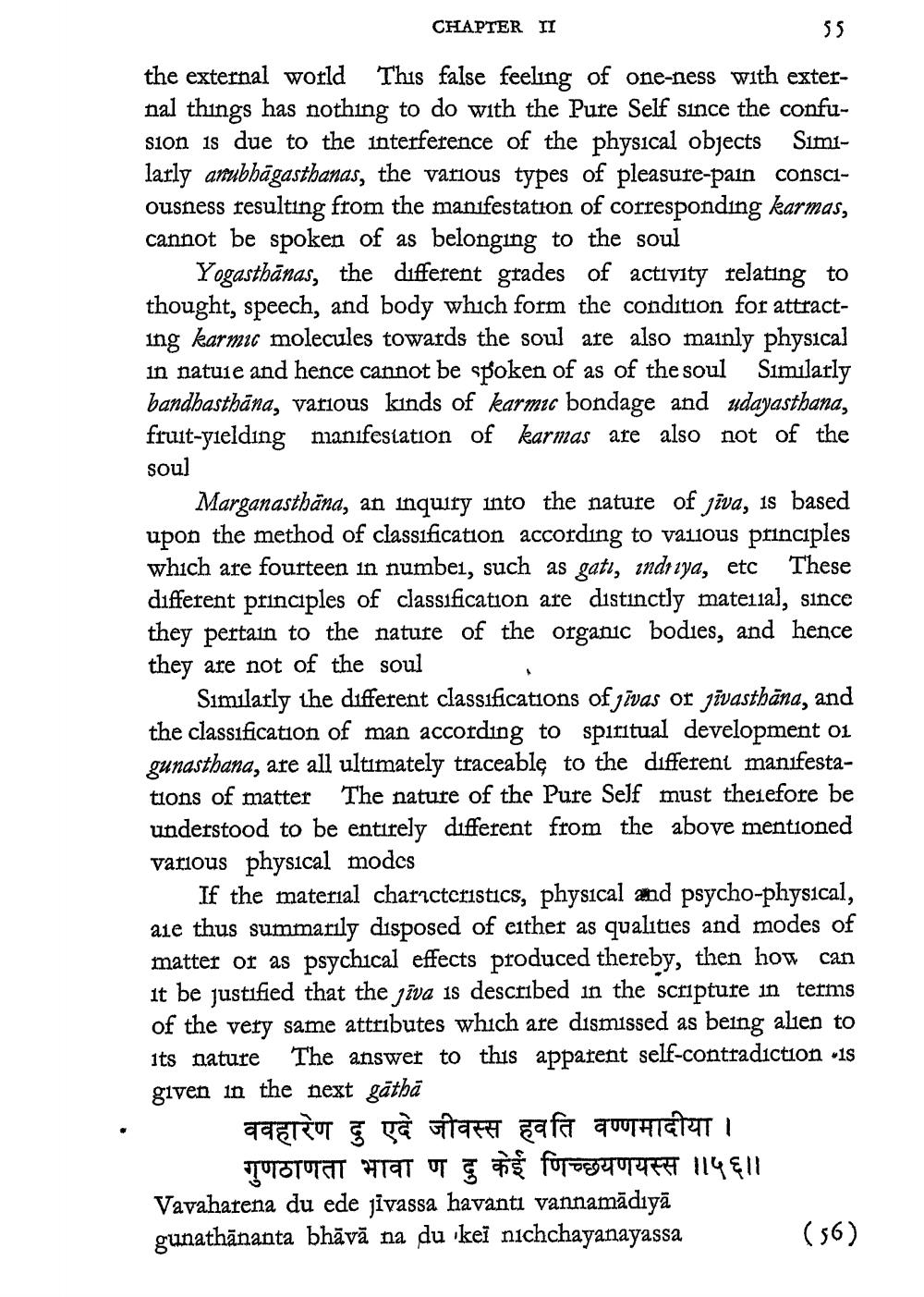________________
CHAPTER II
55 the external world This false feeling of one-ness with external things has nothing to do with the Pure Self since the confusion is due to the interference of the physical objects Similarly arubhāgasthanas, the various types of pleasure-pain consciousness resulting from the manifestation of corresponding karmas, cannot be spoken of as belonging to the soul
Yogasthānas, the different grades of activity relating to thought, speech, and body which form the condition for attracting karmic molecules towards the soul are also mainly physical in natuie and hence cannot be spoken of as of the soul Similarly bandhasthāna, various kinds of karmic bondage and udayasthana, fruit-yielding manifestation of karmas are also not of the soul
Marganasthana, an inquiry into the nature of jiva, is based upon the method of classification according to valious principles which are fourteen in numbei, such as gati, indriya, etc These different principles of classification are distinctly material, since they pertain to the nature of the organic bodies, and hence they are not of the soul
Similarly the different classifications of jīvas or pivasthāna, and the classification of man according to spiritual development 01 gunasthana, are all ultimately traceable to the different manifestations of matter The nature of the Pure Self must therefore be understood to be entirely different from the above mentioned various physical modes
If the material characteristics, physical and psycho-physical, ale thus summarily disposed of either as qualities and modes of matter or as psychical effects produced thereby, then how can it be justified that the jiva is described in the scripture in terms of the very same attributes which are dismissed as being alien to its nature The answer to this apparent self-contradiction "1s given in the next gātha
ववहारेण दु एदे जीवस्स हवति वण्णमादीया ।
गुणठाणता भावा ण दु केई णिच्छयणयस्स ॥५६॥ Vavaharena du ede jivassa havantı vannamādiyā gunathānanta bhāvā na du kei nichchayanayassa (56)




